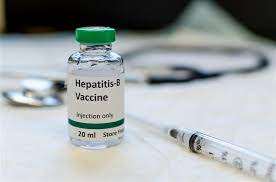WASHINGTON, Oct 21: Three doses of HEPLISAV-B vaccine provide full protection to adults with HIV, who were never immunised against hepatitis B virus (HBV) either through vaccination or infection, according to a study.
In the research presented at the annual IDWeek conference held in Washington, US from October 19 to 23, the researchers from University of Cincinnati and Cornell University tested the three-dose course of HEPLISAV-B among 68 adults living with HIV at 38 sites in the US, South Africa, and Thailand.
None of the participants had either received a previous HBV vaccination or had evidence of a previous HBV infection – all were on antiretroviral therapy to combat infection by retroviruses such as HIV. Retroviruses are a group of viruses that contain two single-strand linear RNA molecules per virion, or a viral particle, and reverse transcriptase (RNA to DNA).
Following the initial dose of HEPLISAV-B vaccine 0.5 milliliter (mL) as an intramuscular injection, the study participants received additional doses at four weeks and 24 weeks.
The objective of this part of the study was to assess anti-HBV surface antibodies (HBsAbs) greater than or equal to 10 milli-international units per milliliter (mIU/mL) at week 28, defined as seroprotection, or protection in the blood serum, from HBV, and to assess the vaccine’s safety.
According to the research, all participants achieved seroprotection with 88 per cent of them achieving HbsAb levels greater than 1000 mIU/mL. High antibody levels are associated with long-term vaccine durability.
At eight weeks after the second dose, 94.4 per cent of participants achieved seroprotection, which increased to 98.5 per cent by week 24 prior to the third dose, according to the researchers.
The most common side effects related to vaccination were injection site pain, malaise, fatigue, muscle aches and headaches.
HBV is spread primarily through sexual contact and sharing of contaminated needles. It causes chronic hepatitis B infection and can lead to progressive liver disease.
People living with HIV, including those who are taking antiretroviral therapy, are at a greater risk of liver-related illness and death when co-infected with HBV.
According to the Centers for Disease Control and Prevention, 10 per cent of U.S. Adults with HIV also have hepatitis B. People living with HIV are less likely to produce a protective immunological response to HBV vaccination.
The HEPLISAV-B vaccine, made by the California-based Dynavax Technologies, was approved in 2017 by the U.S. Food and Drug Administration as a two-dose vaccine regimen for adults. However, little was known about its protective effects in people living with HIV. (PTI)


